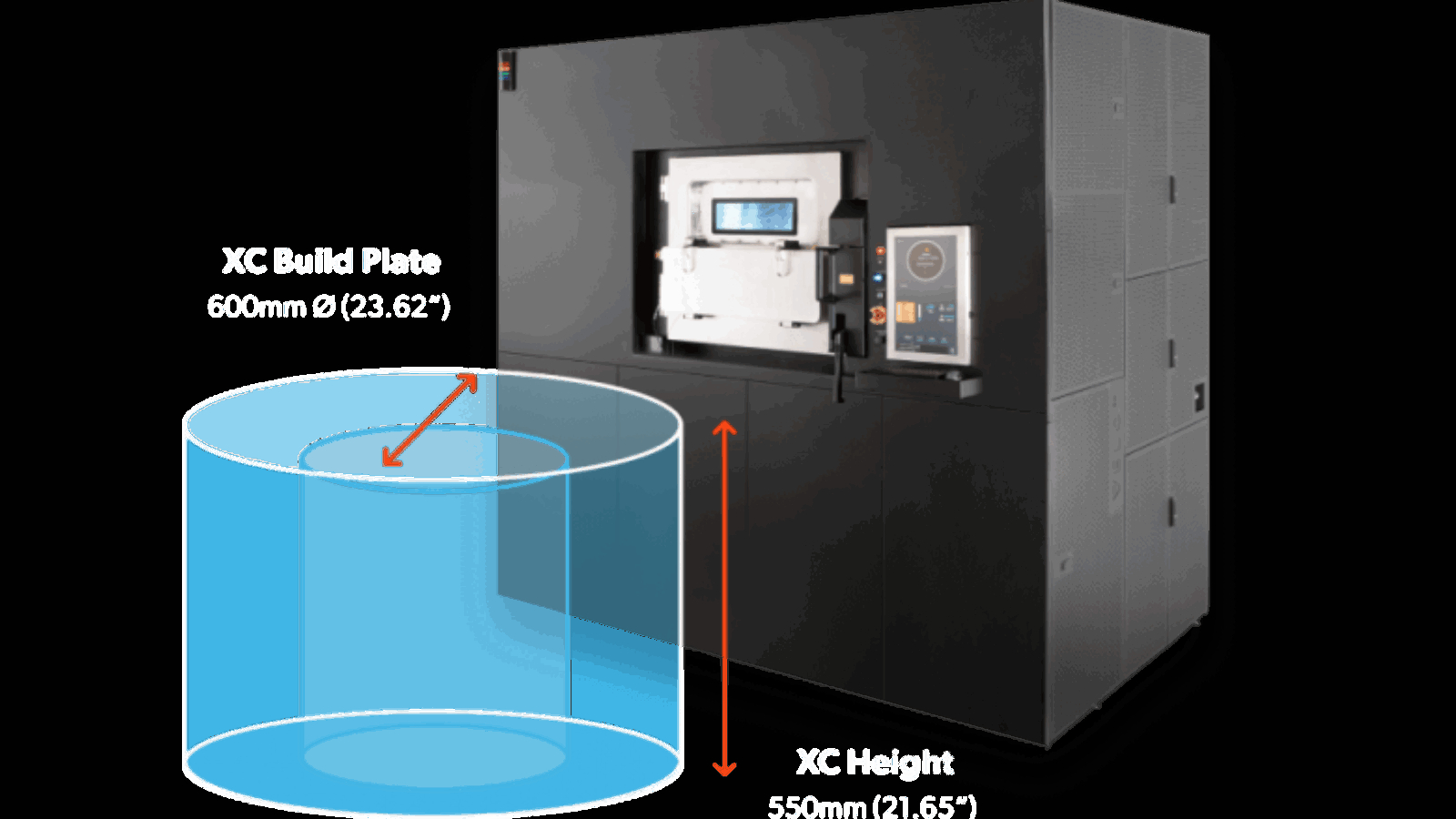Velo3D (NYSE: VLD) delivered its first Sapphire XC 3D printer. Featuring 8 1-kW lasers, the Sapphire XC, or “Extra Capacity,” is Velo3D’s newest and largest metal 3D printer, made for faster production and larger parts. The Sapphire XC is a scaled-up version of the Sapphire printer, utilizing the same Flow print preparation software, the same Assure quality control software, and the same Intelligent Fusion manufacturing process. Velo3D revealed that the system has been acquired by an aerospace customer but did not disclose the name of the company. Several companies in aviation and space parts manufacturing are already using Velo3D solutions, including SpaceX, Launcher, Primus Aerospace, Honeywell and others.
Sapphire XC is built to enable a seamless transition of parts that were developed and qualified on Sapphire to the larger, more productive system, reducing the cost of producing parts by up to 75%. Sapphire XC also expands the use of Velo3D’s production solution to parts that are up to 400% larger in volume than the largest parts possible to produce with Sapphire. The aerospace company receiving the new Sapphire XC will use it to scale up production of a product built using the Sapphire fleet of metal 3D printers they already have installed.
“I believe that the Sapphire XC will quickly become the gold standard in advanced metal additive manufacturing,” said Benny Buller, Velo3D CEO and Founder. “Because our customer is already utilizing our end-to-end production solution, they can immediately and seamlessly move parts to Sapphire XC to achieve a phenomenal production rate increase. We made a huge effort to ensure that Sapphire XC uses the exact same manufacturing process as Sapphire. The ability to move production seamlessly between different products was considered impossible when we started Velo3D, but I am proud to declare that we have unlocked this ability for our customers and partners. It is a huge accomplishment—our biggest achievement of 2021.”
The new machine is of the largest available laser powder bed fusion (L-PBF) printers with a build volume of 600 mm in diameter and 550 mm in height—400% larger volume than the original Sapphire system. It uses eight 1-kilowatt lasers to selectively weld powdered metal layer-by-layer (Velo3D’s original Sapphire system uses two 1-kilowatt lasers). It also Compared to the original Sapphire system, Velo3D’s proprietary protrusion-tolerant recoater is now twice as fast on Sapphire XC, significantly reducing non-productive overhead time.
All of these features come together to dramatically increase throughput by up to 400%, which lowers the cost of produced parts by up to 75%.
Manufacturing on Demand

Velo3D currently has a backlog of firm bookings for 17 additional Sapphire XC systems as well as 19 additional reservations. The demand is primarily driven by the lower production costs Sapphire XC can enable for customers who have adopted the original Sapphire printers and its ability to produce much larger parts. The ability for existing customers to seamlessly transition from the Sapphire to the Sapphire XC is a key differentiator for Velo3D. This is made possible by Velo3D’s end-to-end solution that preserves design intent and delivers predictable, repeatable outcomes.
The Flow pre-print preparation software analyzes part designs and prescribes a set of known recipes needed to manufacture the part. Customers simply upload the CAD file for a part they would like to print and the software’s integrated simulation engine creates a file that can be used across any device to build exactly the same part. As parts are printed, the Assure™ quality assurance and control system monitors the build and provides detailed reporting for full traceability layer by layer. This gives customers confidence that the parts produced are identical across Sapphire® printers.
The Sapphire XC is able to print using a wide variety of materials that are often used in the production of mission-critical parts in the aviation, aerospace, defense, oil and gas, and energy industries. The list of available metals includes Inconel 718 & 625, Hastelloy X, Hastelloy C22, Aluminum, Scalmalloy, and Titanium Ti-6Al-4V. Velo3D continually evaluates and qualifies new materials for use in its end-to-end solution.
You might also like:
* This article is reprinted from 3D Printing Media Network. If you are involved in infringement, please contact us to delete it.
Author: Davide Sher


Leave A Comment